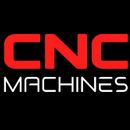10 Things Every Production Machine Shop Should Have: Best Value for Time and Effort

10 Things Every Production Machine Shop Should Have: Best Value for Time and Effort
A well-equipped production machine shop is essential for delivering high-quality parts on time while optimizing costs and efficiency. For any shop looking to maximize its value, there are key tools, technologies, and practices that ensure success. From the latest machinery to strategic organizational methods, here are the top 10 things every production machine shop should have to ensure the best value for time and effort.
1. Advanced CNC Machines
At the core of any production machine shop are the CNC (Computer Numerical Control) machines. Having a variety of CNC machines tailored to your production needs—whether lathes, mills, or multi-axis machines—ensures that your shop can handle complex, precision work with speed and accuracy.
- Value: The precision and versatility of CNC machines reduce the need for rework and increase efficiency, ensuring high-quality output in less time.
- Time Saved: Faster production cycles with less manual intervention mean higher output in shorter timeframes.
2. Automated Material Handling Systems
Automation is key to improving efficiency, particularly in material handling. Automated material handling systems—like robotic arms, conveyor belts, and automated pallet systems—can reduce the amount of manual labor needed to move parts in and out of machines.
- Value: Reduces labor costs, increases machine uptime, and minimizes human error.
- Time Saved: Continuous production with minimal manual intervention increases throughput and reduces downtime between processes.
3. CAD/CAM Software
Computer-Aided Design (CAD) and Computer-Aided Manufacturing (CAM) software are indispensable for any machine shop. These systems streamline the design and programming process, enabling machinists to create highly precise toolpaths and efficiently move from concept to production.
- Value: Reduces the time needed for programming and setup, while minimizing errors during production.
- Time Saved: Automates repetitive programming tasks and allows for rapid prototyping and adjustments.
4. Effective Tool Management System
A tool management system ensures that all tools—whether cutting tools, drills, or end mills—are organized and easily accessible. Automated tool changers can even load the correct tool without manual intervention, increasing efficiency.
- Value: Minimizes downtime caused by searching for tools and increases production efficiency by ensuring the right tools are available when needed.
- Time Saved: Efficient tool organization reduces setup time and ensures smooth production operations.
5. Quality Control Systems
An effective quality control (QC) system, including CMM (Coordinate Measuring Machines) and vision systems, ensures that every part produced meets the required specifications. Automated quality checks during production prevent defects and reduce rework.
- Value: Ensures consistent, high-quality output and reduces waste.
- Time Saved: By catching defects early, quality control systems prevent delays caused by reworking or scrapping parts.
6. Flexible Manufacturing Systems (FMS)
Flexible Manufacturing Systems (FMS) allow for the production of a wide variety of parts with minimal manual setup changes. These systems can switch between different jobs quickly, making them ideal for production environments that require adaptability.
- Value: Reduces lead times and increases production flexibility, allowing you to handle different jobs efficiently.
- Time Saved: Automation of part changes and tool setups enables continuous production, reducing downtime between jobs.
7. ERP System for Shop Management
An ERP (Enterprise Resource Planning) system helps streamline various aspects of your production shop, from inventory management to scheduling and billing. By integrating all business operations into one system, shop owners and managers can make informed decisions based on real-time data.
- Value: Improves decision-making and operational efficiency by providing clear insights into every aspect of the shop.
- Time Saved: Automates many administrative tasks, freeing up time for more critical work.
8. Preventive Maintenance Program
A well-maintained machine is a reliable machine. Implementing a preventive maintenance program ensures that equipment stays in top condition, reducing unexpected breakdowns and costly repairs. This can be achieved with regular inspections and using AI-powered predictive maintenance tools.
- Value: Increases the lifespan of your equipment and reduces costly repairs or replacements.
- Time Saved: Prevents unexpected downtime by identifying potential issues before they escalate.
9. Workforce Training and Skill Development
Investing in ongoing training for machinists and technicians ensures that your team can keep up with the latest technologies and machining techniques. Skilled workers can reduce errors and improve efficiency in the shop.
- Value: Enhances the productivity and effectiveness of your workforce, ensuring high-quality output.
- Time Saved: Well-trained workers can complete jobs more quickly and with fewer errors, improving overall shop performance.
10. Client Relationship Management (CRM) System
A CRM system helps you stay connected with your clients, manage orders, and track interactions. In a production shop, having clear communication with clients about orders, timelines, and specifications is crucial for delivering the best customer service.
- Value: Improves client satisfaction, builds long-term relationships, and increases repeat business.
- Time Saved: Streamlines communication and reduces time spent managing orders manually, allowing for a smoother workflow from order intake to delivery.
Conclusion
A production machine shop that combines advanced technology with strategic organization can achieve maximum value for time and effort. By investing in the right equipment—such as CNC machines, automation systems, and ERP software—and maintaining a focus on quality control, tool management, and workforce development, shops can streamline operations, increase output, and maintain high-quality standards. These ten essentials will help any production shop remain competitive and efficient in today's fast-paced manufacturing environment.


